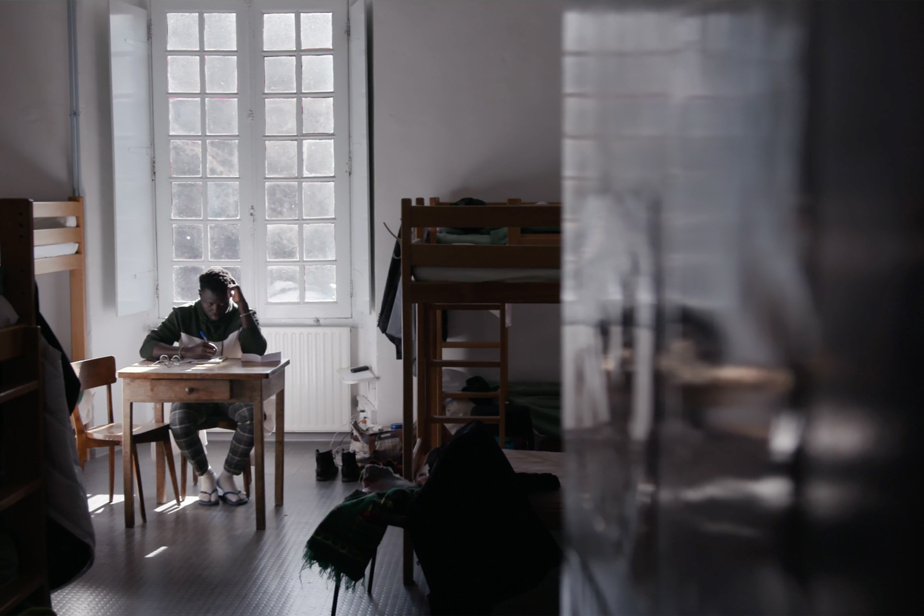The relatives of Souleymane Cissé, pioneer of Malian cinema, speak in this tribute film directed by his daughter Fatou Cissé, also presented at the last Montreal Black Film Festival.
This intimate portrait which evokes the difficulties of making cinema in Africa, but also the glories of Souleymane Cissé, tells a lot without saying everything, especially about his relationship with his wife, actress Dounamba Dany Coulibaly. “Someone from the outside might have taken a different look, but there, this film comes from the family, there may be things left unsaid”, agrees Kotimi Guira, director of programming for Vues d’ Africa. This film was unveiled at the last Cannes Film Festival, in 2022, where Souleymane Cissé won the Jury Prize in 1987 for Yeelen. The filmmaker will be present at the opening night this Thursday before receiving Le Carrosse d’Or in Cannes next month.
Men and women who have survived illegal immigration find themselves in the French countryside to heal their deep psychological wounds and try to find the words to talk about what they have experienced. “These people don’t know what awaits them when they leave. They often saw people die, they held their hands, they saw children suckle their dying mothers and were not prepared for that, underlines Kotimi Guira. And it is not easy to get out of these traumas. Cécile Allegra’s film is delicate and human, she underlines. It advances at the pace of each of the people who confide in the camera and reveals the healing power of art, also evoked in the film Watba by Giedon Vink.
Two friends from two distinct ethnic groups, Bouba and Ben, must face their differences despite the strong ties that unite them. They will be reunited, because they still share a rare characteristic that could save the life of one of the two. Kotimi Guira insists on the skill of Bobo Herico’s film which manages to evoke complex questions by anchoring it in something deeply human. “He found a clever way of saying that ethnicity is just a label that we’re given and deep down we’re all the same, human beings,” she said. Young people don’t want that kind of manipulation anymore – to me, it’s manipulation. And it divides. This film shows that beyond the manipulations, we all have the same blood. »
It rains very little in the south-west of Madagascar, on the plateau of Mahafaly. However, ingenious villagers had an idea a long time ago that would ensure a water supply for them: to dig the trunks of the baobabs, these giant trees, to transform them into cisterns… “There are family cisterns and other public cisterns. , and they fill with water when it rains. What is exceptional, says Kotimi Guira, is that even if the tree is dug, it does not die. When it is no longer usable, it simply closes. The film notably follows researcher Cyrille Cornu, who has been studying baobabs for ten years.
The envoy of the title is the young Fatima, 12, recruited by jihadists who order her to go blow up a bomb in a market. Once deposited near the place of the attack, she will have ten minutes to accomplish her disastrous task. “As she walked around, she saw her mother and thought back to her life. I’m not telling you how the movie ends,” says Kotimi Guira. Amina Mamani’s film highlights the exploitation of children in the war led by the jihadists and how a child, that is to say a person who is considered easy to manipulate, can question what it is imposed on him.















